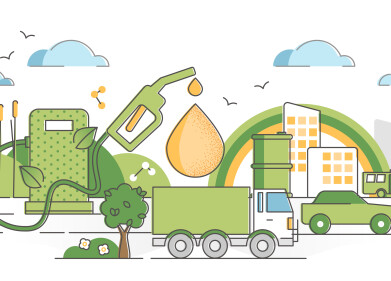-
 New biofuel analysis warns of the effects of growing feedstock intensively in the Mississippi delta
New biofuel analysis warns of the effects of growing feedstock intensively in the Mississippi delta
Biofuel industry news
Biofuel analysis warns of unintended consequences in Mississippi delta
Dec 01 2010
Among the offshoots of switching from growing cotton to raising corn crops in the Mississippi delta are lower water levels in the permeable surrounding rock and lower oxygen levels in the Gulf of Mexico.
These problems arise because it takes 80 per cent more water to grow feedstock crops used in biofuels than it does to raise cotton to a harvestable level.
Farmers working in the delta are being asked to take the findings of the biofuel analysis into account when deciding what and where to plant.
USGS hydrologist and study co-author Jeannie Barlow says: "We are seeing a loss of habitat complexity - and lowered water levels have decreased base flow to streams."
The USGS notes that freshwater supplies are important not only to ecosystems in the wild, but also to ensure human societies have an adequate amount of the resource available.
Digital Edition
PIN 25.6 Buyers' Guide
January 2025
Buyers' Guide Directory - Product Listings by Category - Suppliers Listings (A-Z) Articles Analytical Instrumentation - ASTM D7042: The Quantum Leap in Viscosity Testing Technology -...
View all digital editions
Events
Jan 20 2025 San Diego, CA, USA
Jan 22 2025 Tokyo, Japan
Jan 25 2025 San Diego, CA, USA
SPE Hydraulic Fracturing Technology Conference and Exhibition
Feb 04 2025 The Woodlands, TX, USA
Feb 05 2025 Guangzhou, China


















